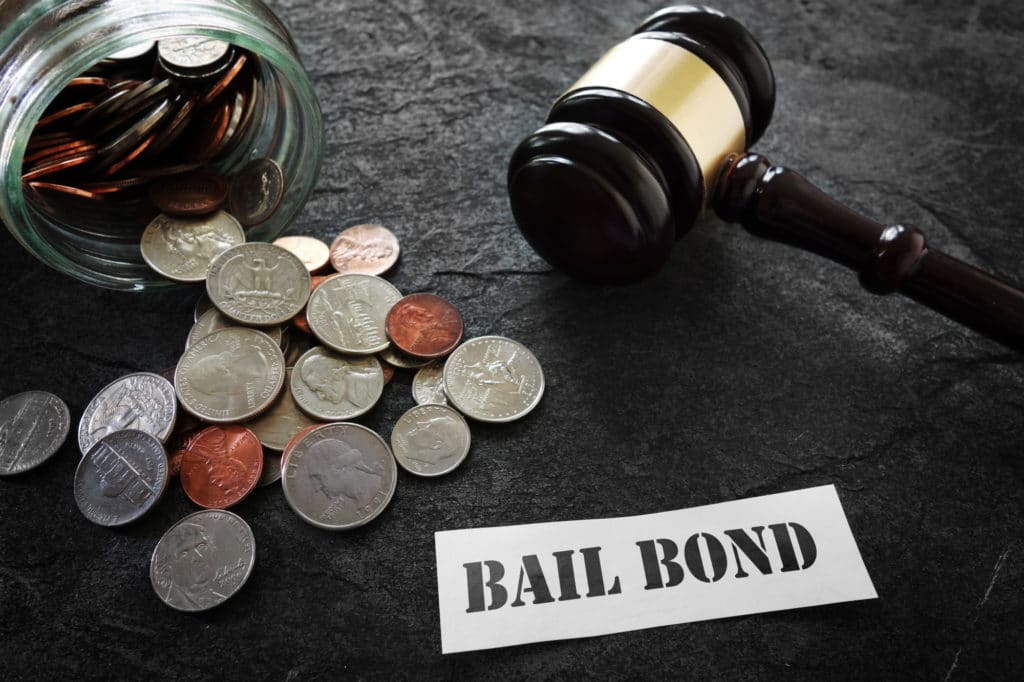Relied On Bail Bonds Dayton Ohio - Fast and Reliable Solution
Relied On Bail Bonds Dayton Ohio - Fast and Reliable Solution
Blog Article
Browsing the Legal Labyrinth: Bail Bonds Explained for Beginners
Navigating the complexities of the legal system can often really feel like passing through a complicated labyrinth, particularly when it pertains to comprehending Bail bonds. For novices entering this strange surface, understanding the ins and outs of Bail bonds is crucial in guaranteeing a enlightened and smooth process. From the fundamentals of how Bail bonds function to the various kinds offered, each element plays a vital function in facilitating the release of individuals awaiting trial. As we dig deeper into this subject, clearness will certainly be shed on the bail bond procedure, the linked prices, and valuable tips for properly engaging with bondsman.
Basics of Bail Bonds
Bail bonds serve as a financial warranty that a defendant will certainly appear in court as required. If the individual can not pay for the full Bail quantity established by the court, a bail bond representative can be gotten to provide the required funds on their part.
Essentially, a bail bond is an agreement in between the accused, the court, and the bail bond agent. The representative concurs to pay the full Bail amount if the accused fails to show up in court, in exchange for a non-refundable fee commonly set at 10% of the total Bail.
Sorts Of Bail Bonds
The most typical kind is a cash money bond, where the defendant or a relative pays the complete Bail amount in cash money. One more alternative is a surety bond, where a bond bondsman pays the Bail on behalf of the defendant for a cost, generally around 10% of the complete Bail amount. Comprehending these various types of Bail bonds can aid people navigate the legal procedure extra properly.
Bail Bond Refine Described
The bail bond process involves a series of lawful steps that facilitate the launch of an accused from guardianship pending their court look. When an individual is arrested, a judge establishes a bail amount based on the seriousness of the supposed crime and the likelihood of the defendant appearing in court. If the accused can not manage the full Bail quantity, they can look for the solutions of a bail bondsman. The defendant or their liked ones pay the bail bondsman a non-refundable fee, usually a portion of the total Bail quantity, to safeguard a bail bond. The bail bondsman after that publishes the full Bail amount to the court, ensuring the defendant's appearance in all court process.

Understanding Bail Bond Prices
Upon securing a bail bond through a bail bonds agent training bondsman, people experience a crucial element of the lawful process: the economic responsibilities tied to the bail bond. Bail bond expenses usually include a non-refundable fee, generally around 10% of the overall Bail amount established by the court.
In addition to the costs, security may be called for to secure the bail bond. Collateral can be in the form of building, important assets, or a co-signer that assures payment if the offender avoids Bail. The security offers as a back-up prepare for the bondsman in situation the accused absconds.
It's critical for individuals seeking Bail bonds to completely comprehend the costs involved and the regards to the contract prior to continuing. By being informed regarding bail bond prices, people can navigate the legal process better and make knowledgeable choices.
Tips for Dealing With Bail Bondsmen

In addition, it's important to supply accurate info about the defendant and their instance. This includes information such as their complete name, day of birth, the location of webpage their arrest, and the costs they are dealing with. montgomery county bail bonds. Offering incomplete or inaccurate details can bring about delays in the bail bond procedure

Conclusion
To conclude, understanding the basics of Bail bonds, the different types offered, the process entailed, and the prices connected with them is crucial for browsing the lawful system. By functioning with Bail bondsmen and complying with these pointers, people can guarantee a smoother and much more efficient Bail process. It is vital to be notified and experienced when handling Bail bonds to stay clear of any unnecessary problems or misunderstandings.
Essentially, a bail bond is a contract in between the defendant, the court, and the bail bond representative. Another alternative is a guaranty bond, where a bond bondsman pays the Bail on behalf of the defendant for a charge, generally around 10% of the overall Bail quantity. The offender or their enjoyed ones pay the bondsman a non-refundable cost, generally a percentage of the total Bail quantity, to safeguard a bail bond.Upon safeguarding a bail bond through a bondsman, people run into this contact form an important element of the legal procedure: the economic responsibilities linked to the bail bond. Bail bond expenses typically include a non-refundable fee, usually around 10% of the complete Bail amount established by the court.
Report this page